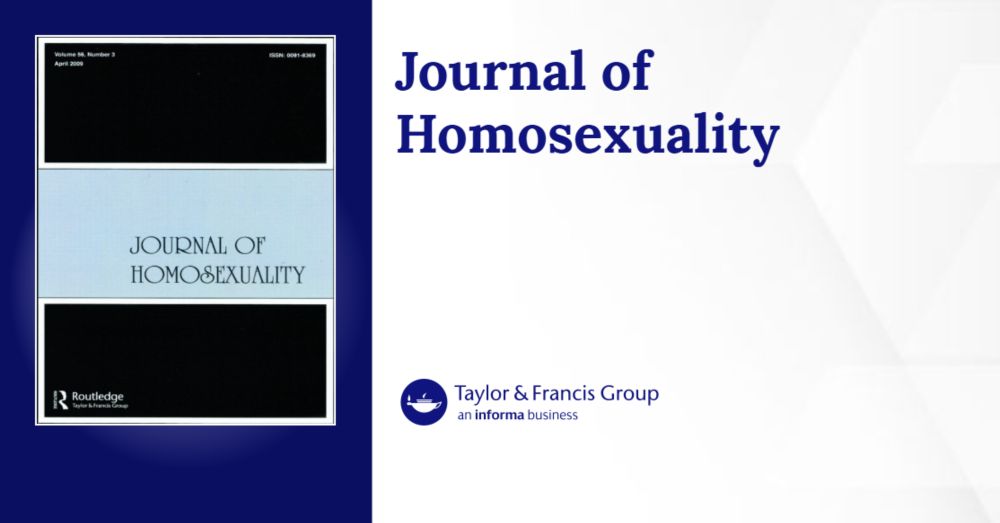
Source: doi.org/10.1080/0091...
13.05.2025 10:49 — 👍 0 🔁 0 💬 0 📌 0@benjaminpastorelli.bsky.social
PhD in Psychology | Exploring identity, discrimination, diversity, inclusion | he/him | France | just landed on Bluesky

Source: doi.org/10.1080/0091...
13.05.2025 10:49 — 👍 0 🔁 0 💬 0 📌 0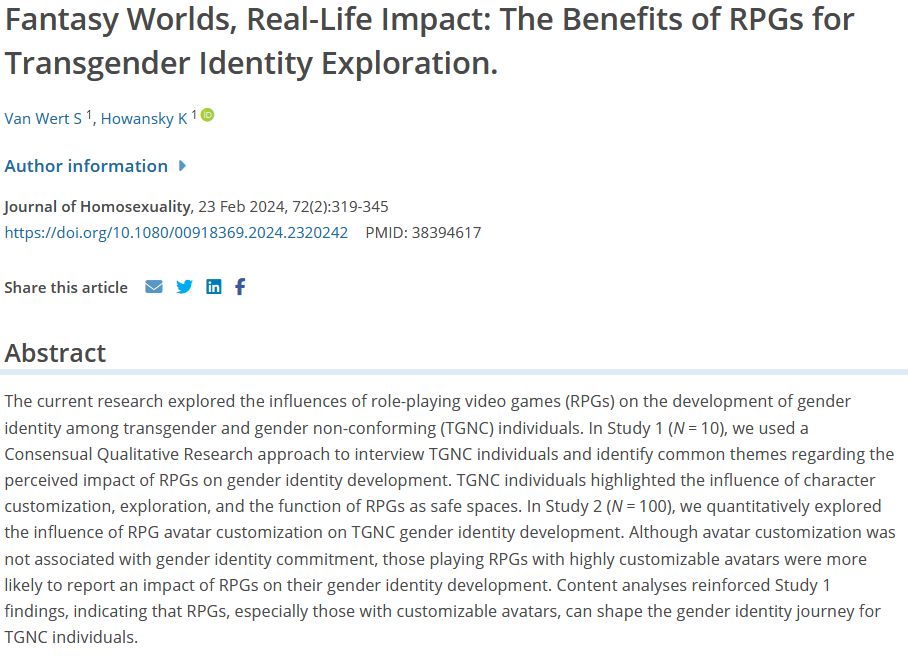
The current research explored the influences of role-playing video games (RPGs) on the development of gender identity among transgender and gender non-conforming (TGNC) individuals. In Study 1 (N = 10), we used a Consensual Qualitative Research approach to interview TGNC individuals and identify common themes regarding the perceived impact of RPGs on gender identity development. TGNC individuals highlighted the influence of character customization, exploration, and the function of RPGs as safe spaces. In Study 2 (N = 100), we quantitatively explored the influence of RPG avatar customization on TGNC gender identity development. Although avatar customization was not associated with gender identity commitment, those playing RPGs with highly customizable avatars were more likely to report an impact of RPGs on their gender identity development. Content analyses reinforced Study 1 findings, indicating that RPGs, especially those with customizable avatars, can shape the gender identity journey for TGNC individuals.
An interesting research idea of how games can help us develop our gender identity.
#PsychSciSky #SocialPsych #ResearchSky #AcademicSky #LGBT+ #RPG
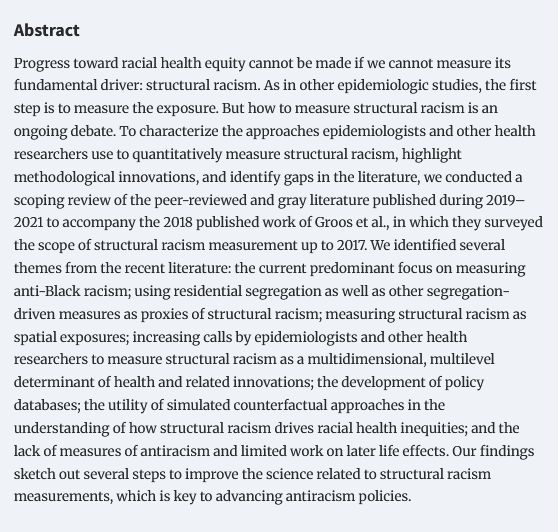
Progress toward racial health equity cannot be made if we cannot measure its fundamental driver: structural racism. As in other epidemiologic studies, the first step is to measure the exposure. But how to measure structural racism is an ongoing debate. To characterize the approaches epidemiologists and other health researchers use to quantitatively measure structural racism, highlight methodological innovations, and identify gaps in the literature, we conducted a scoping review of the peer-reviewed and gray literature published during 2019–2021 to accompany the 2018 published work of Groos et al., in which they surveyed the scope of structural racism measurement up to 2017. We identified several themes from the recent literature: the current predominant focus on measuring anti-Black racism; using residential segregation as well as other segregation-driven measures as proxies of structural racism; measuring structural racism as spatial exposures; increasing calls by epidemiologists and other health researchers to measure structural racism as a multidimensional, multilevel determinant of health and related innovations; the development of policy databases; the utility of simulated counterfactual approaches in the understanding of how structural racism drives racial health inequities; and the lack of measures of antiracism and limited work on later life effects. Our findings sketch out several steps to improve the science related to structural racism measurements, which is key to advancing antiracism policies.
How to measure structural racism?
There are so many possibilities!
Here's a recent review: buff.ly/PqgdQQ4
#PsychSciSky #SocialPsych #ResearchSky #AcademicSky
#systemicracism
[2/2]
In my opinion, the problem is not the video game itself, but the way in which men are represented in it.
On the contrary, a more varied and less virilistic representation could allow us to experiment with other ways of being a man.
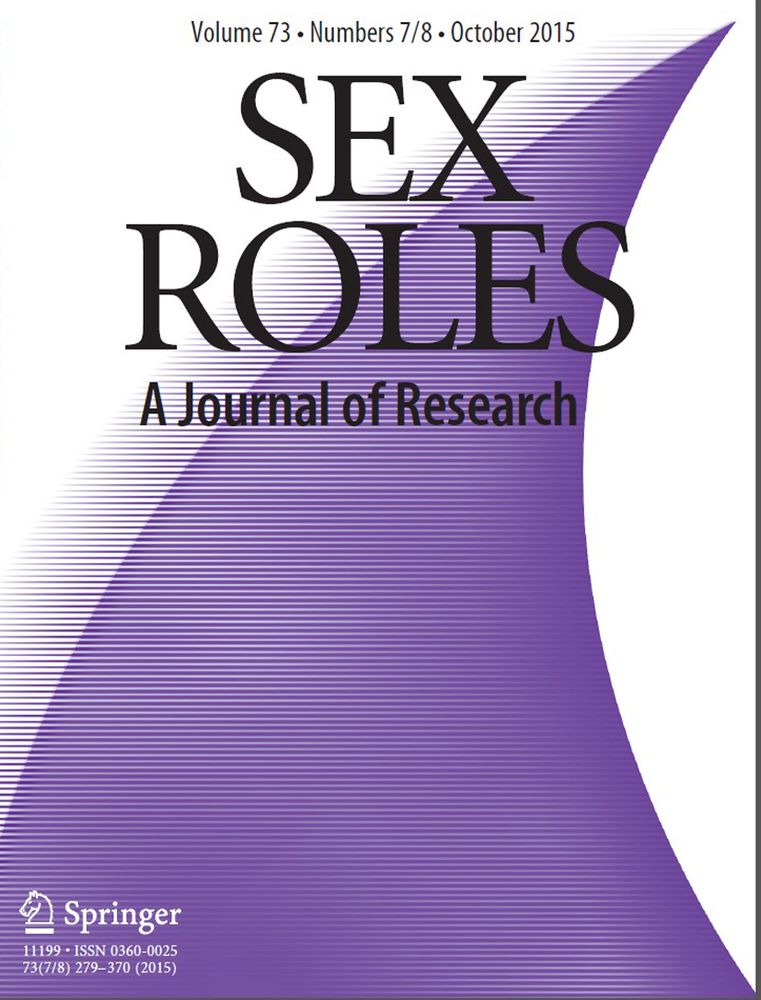
[1/2]
Both men and women videogame players tend to endorse a representation of masculinity that includes aggression and the suppression of emotions, according to a 2019 study.
This has negative implications for society as a whole, by encouraging toxic behaviour.
Source: buff.ly/ytjczQ3
This highlights the dangers for masculinist circles for their own members, as well as society at large (particularly women and gender minorities).
14.04.2025 13:19 — 👍 0 🔁 0 💬 0 📌 0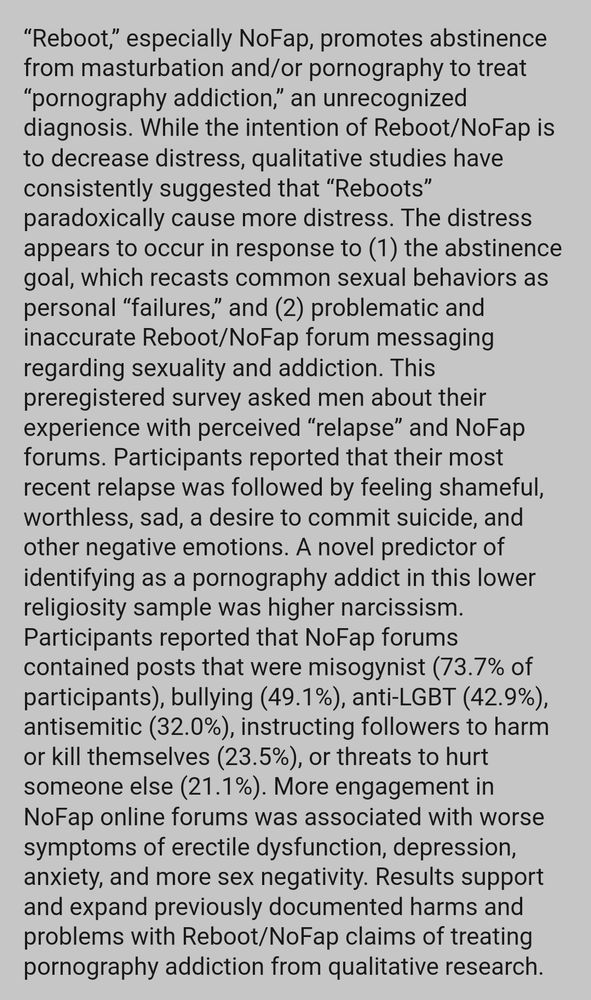
The abstinence cures advocated by certain masculinist circles (NoFap) could have dramatic consequences for men :
- strong negative emotions,
- suicidal thoughts.
The study: scholar.google.com/scholar?hl=f...
#SocialPsych #PsychSciSky #ClinicalPsych
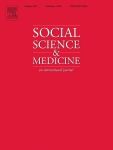
Full article from Dougall et al. 2024, available here:
www.sciencedirect.com/science/arti...
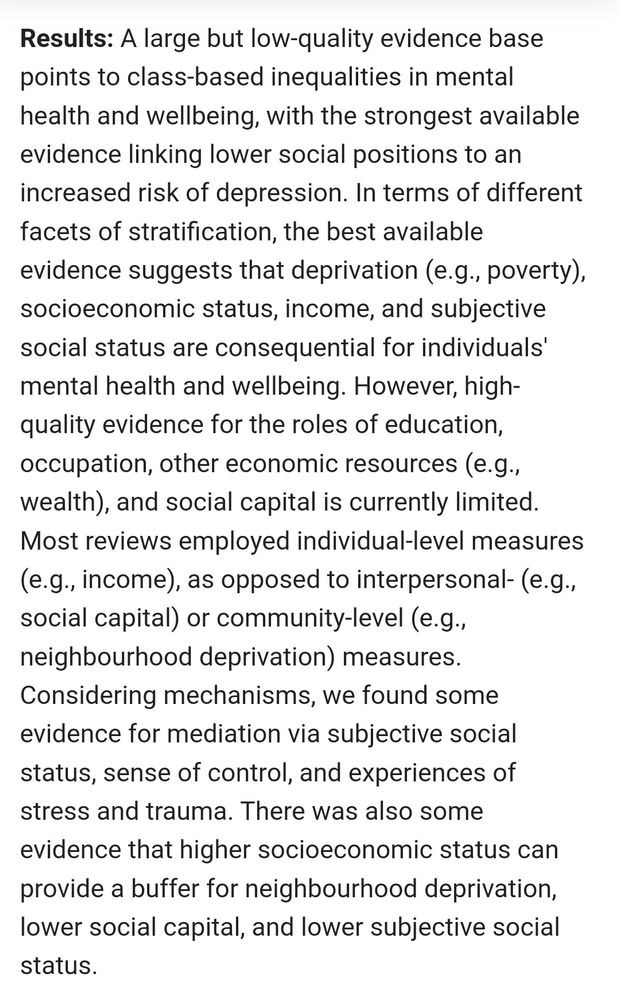
Highlights •We meta-review 149 reviews on social class and mental health/wellbeing. •Evidence across reviews varies for different facets of social stratification. •There is some, but fairly limited evidence for moderators and mediators. •There is higher-quality evidence linking lower social positions to depression. •We require low-bias reviews synthesising high-quality primary studies.
A very interesting review on the links between social class and mental health
Currently, the strongest evidence links lower social positions to depression.
#SocialPsychology #PsychSciSky #ClinicalPsychology
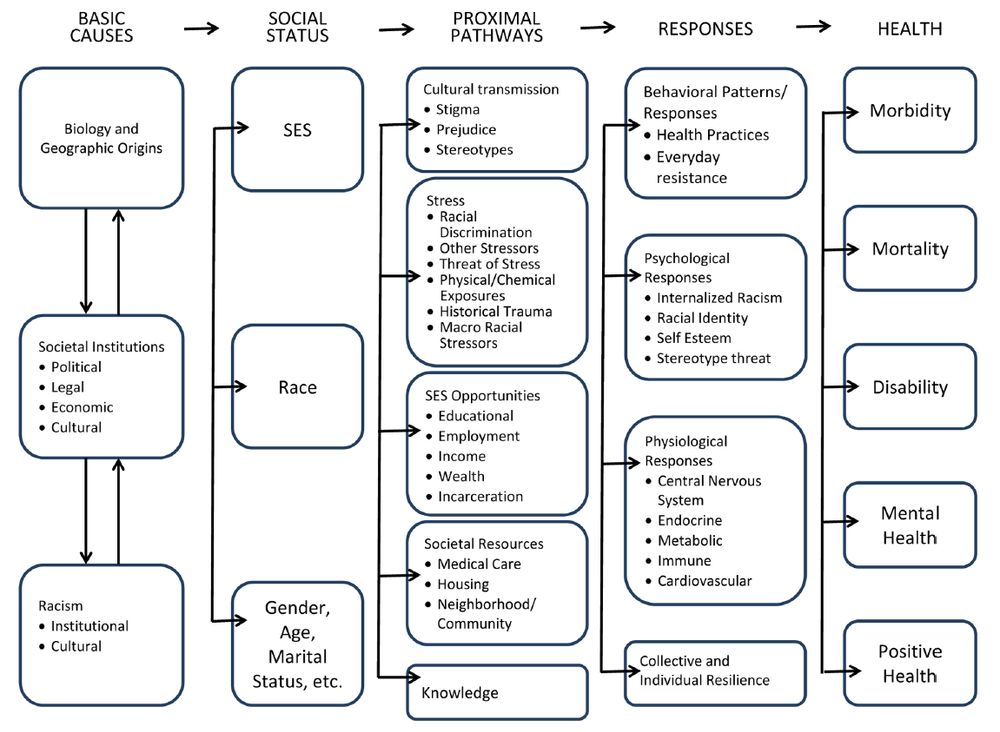
A Framework for the Study of Racism and Health
Racism (and all forms of discrimination) has a major impact on health.
Williams & Mohammed (2013) proposed an interesting framework for studying these complex phenomena.
#socialpsych #healthpsych #psychscisky
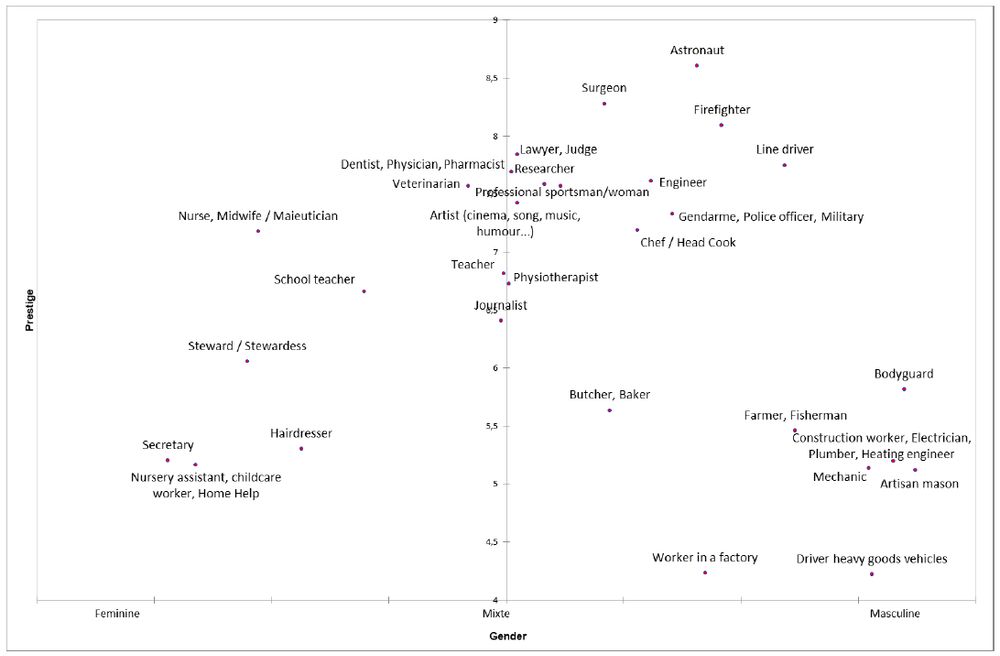
Stereotypically male professions are also perceived as being the most prestigious.
This has an impact on children's career plans.
#psychscisky #socialpsych
Based on Jaoul-Grammare, 2024.
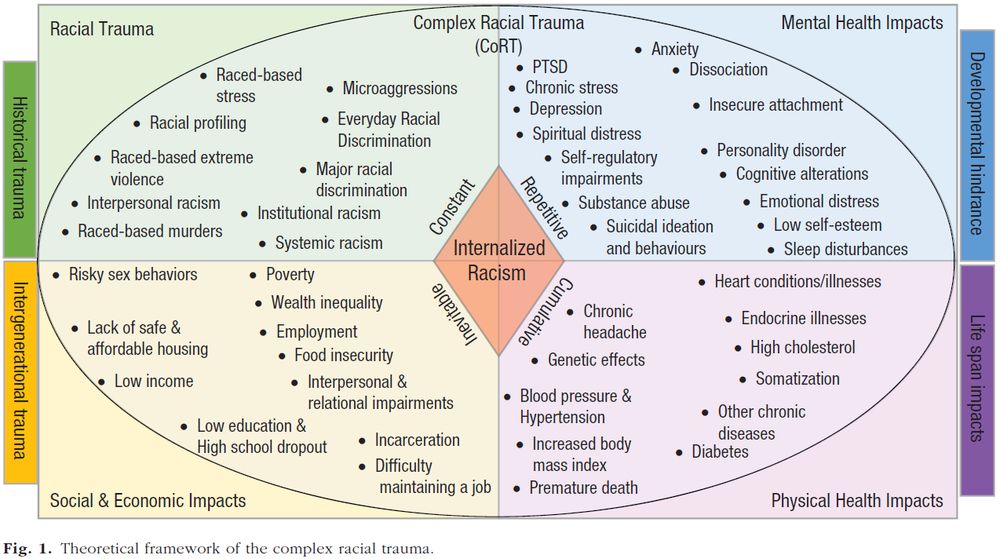
Theoretical framework of the complex racial trauma.
"Racial trauma is just trauma with racism"
It's a bit more complicated!
#psychscisky #healthpsych
Based on Cénat, 2023.
Microaggresion examples:
• assumptions that a person of color is a foreigner
• denial that one does not “see” race
• assumptions of criminality
• denial of individual racism
• assumptions regarding the myth of meritocracy,
• assumptions that one’s cultural background is less valued
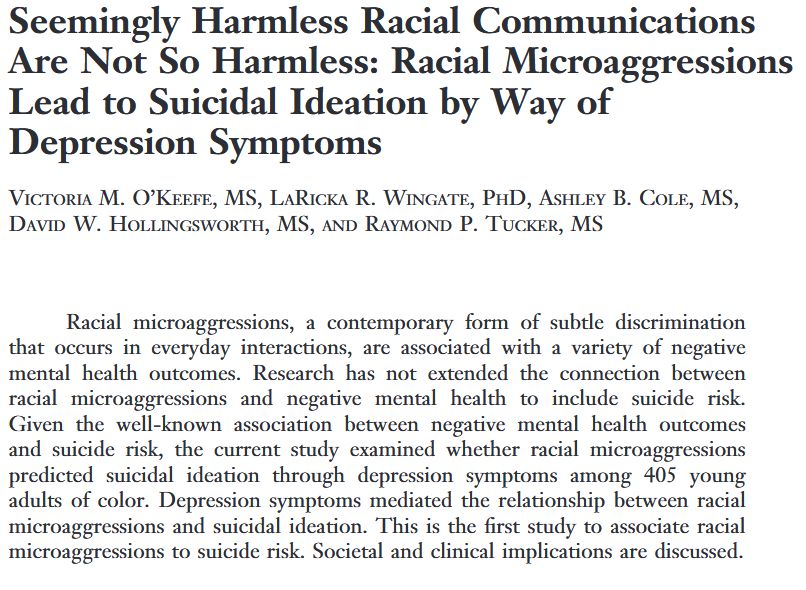
Even "little racist jokes", "innocent" remarks or snobbish looks have an impact on the health of minorities.
These racist microaggressions contribute to depression and can lead to suicide.
#socialpsych #psychscisky
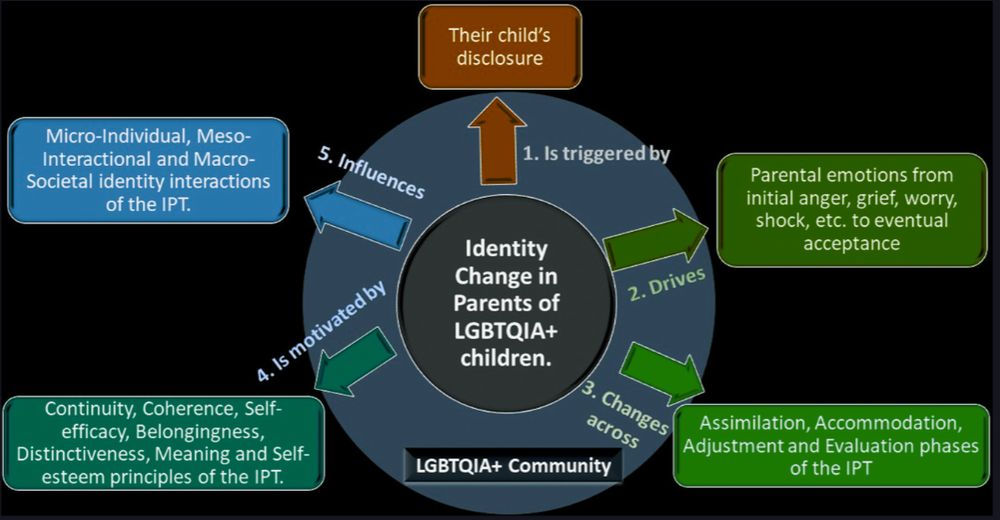
A different perspective on the reaction of parents of LGBT+ children.
It provides a better understanding of how their own identity evolves after disclosure.
#socialpsychology
Figure and source: buff.ly/QHBtiXX
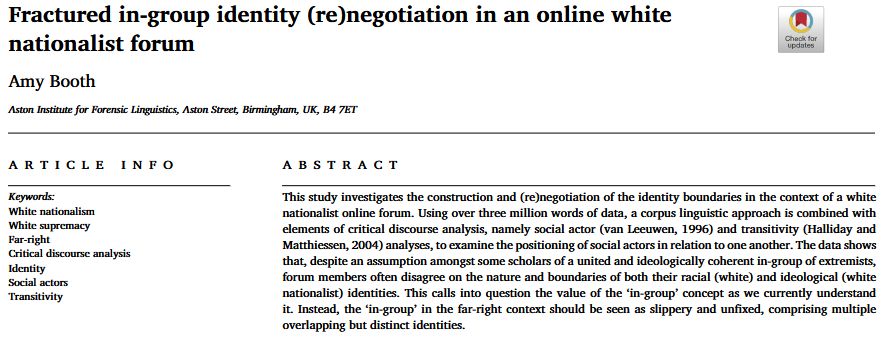
The study: Booth, 2023.
buff.ly/O9T7JPR
According to a 2023 study, the identity of white nationalist groups is more fluid than we think.
Even if they consider race to be fixed and biological, they frequently debate the boundaries of what is "white" or not.
Ironically, their own discussions reaffirm that race is a social construct.

The far right has an ambivalent relationship with authority: both anti-elitist and authoritarian.
Even if these attitudes are contradictory, they both respond to the feeling of insecurity fostered by the rhetoric of the far right.
#socialpsychology
Figure and ref in: buff.ly/d584Vu9

Imagining yourself in contact with a different group can help to form a shared identity.
Perhaps video or role-playing games could be good ways of combating discrimination.
#socialpsychology
Figure and results from Hu et al. 2025: buff.ly/bNFuqWJ
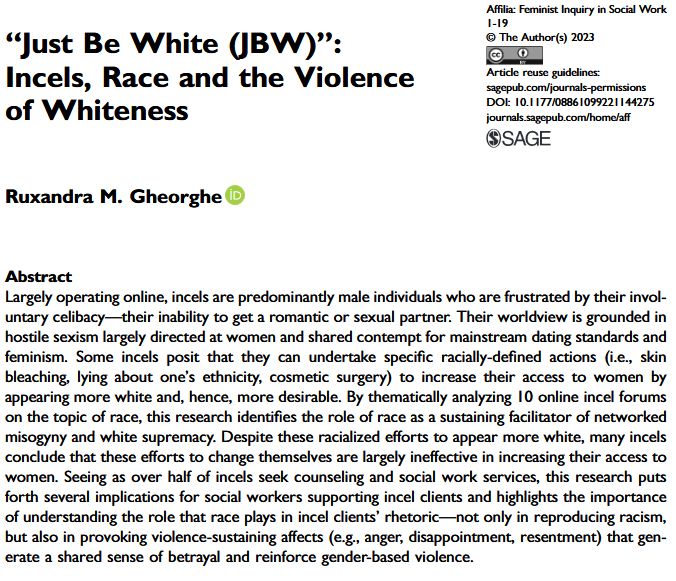
Incels worldview is grounded in hostile sexism largely directed at women and shared contempt for mainstream dating standards and feminism. Some incels posit that they can undertake specific racially-defined actions to increase their access to women by appearing more white and, hence, more desirable. Despite these racialized efforts to appear more white, many incels conclude that these efforts to change themselves are largely ineffective in increasing their access to women. Seeing as over half of incels seek counseling and social work services, this research puts forth several implications for social workers supporting incel clients and highlights the importance of understanding the role that race plays in incel clients’ rhetoric—not only in reproducing racism, but also in provoking violence-sustaining affects (e.g., anger, disappointment, resentment) that gen-erate a shared sense of betrayal and reinforce gender-based violence.
Incels are often seen as White. Yet some identify as Black or Asian.
Incel rhetoric builds on this, using concepts such as ‘racepill’, which mainly push to make one's racial identity invisible (‘just be white’).
It raises the question of intersectionality in the incel context.
#socialpsychology
Thank you very much!
But I can't DM you. Maybe your Bluesky parameters restrict the possibilities to contact you.
That's very interesting!
Is an article planned?
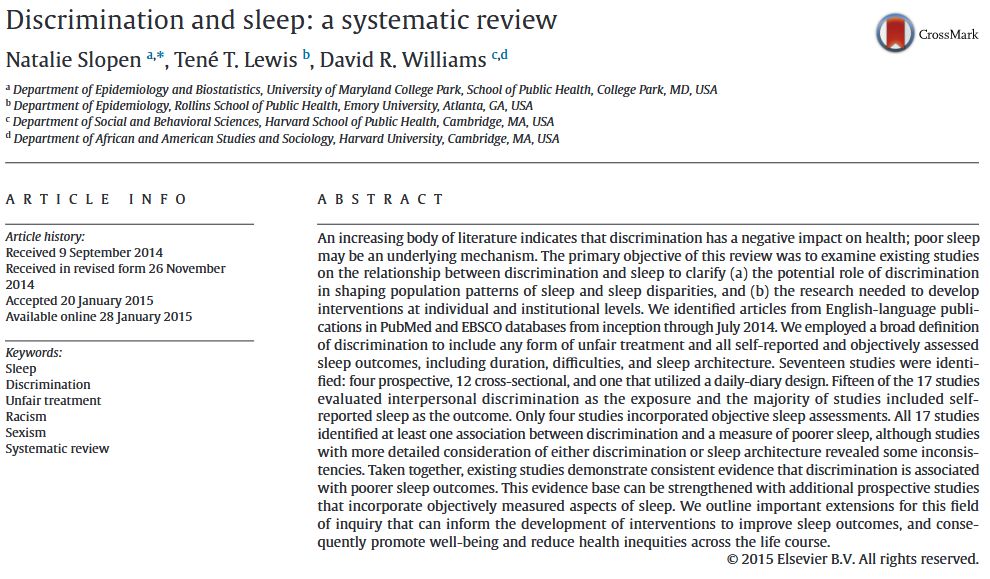
There is consistent evidence that discrimination is associated with poorer sleep.
It could be due to stress and worry.
This relationship appears to be independent of depression (a disorder that is also often linked to discrimination and sleep).
#mentalhealth
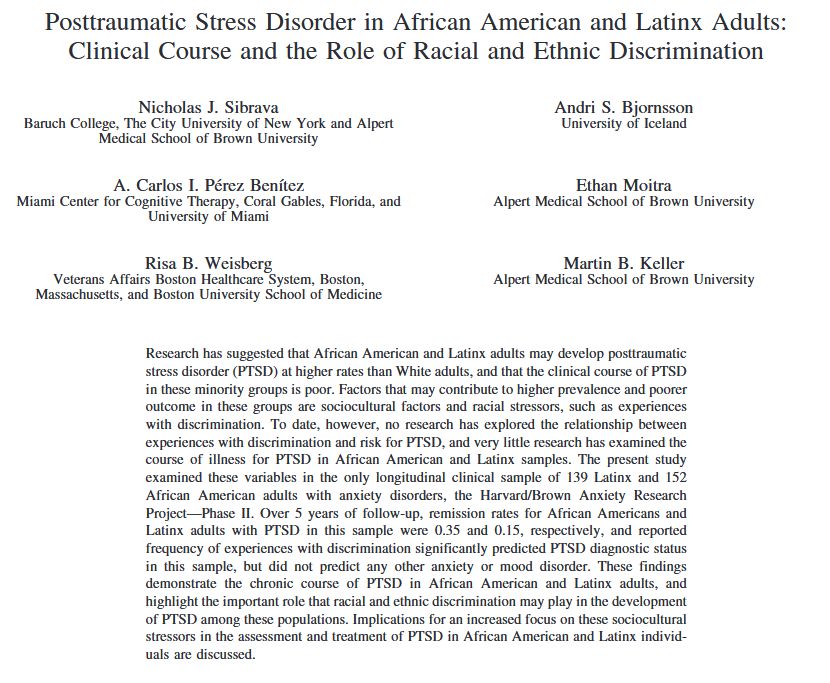
Discrimination appears to
- increase the risk of Post-Traumatic Stress Disorder,
- increase the severity of symptoms
- reduce the quality of recovery.
This does not seem to be due to treatment underutilization, according to a 2019 study.
#PTSD
The article is available online in open-access. Here:
psycnet.apa.org/fulltext/202...
If it doesn't work, don't hesitate ask me again!
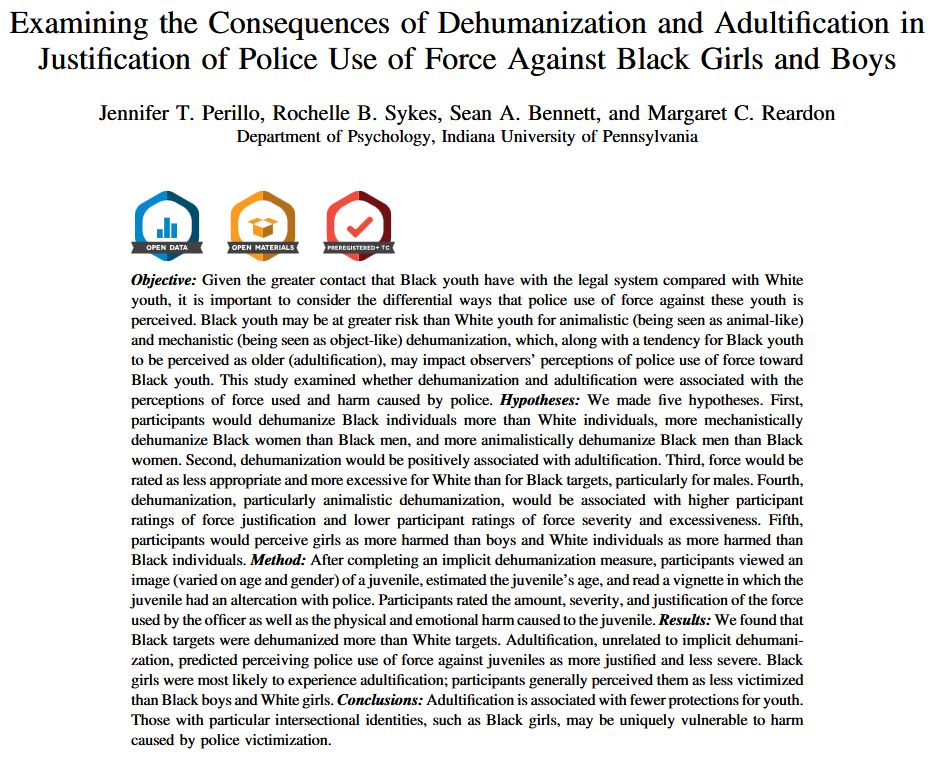
Black children are seen as more adult than white children. This is called adultification.
It contributes to the perception that the use of force by the police is more justified, threatening the protection of young people.
#socialpsychology
Thanks! One of political science, if it's ok
08.03.2025 08:36 — 👍 0 🔁 0 💬 0 📌 0An interesting one:
Hu, Y., Yan, Y., & Zhang, D. (2025). The relationship between imagined intergroup contact and common ingroup identity : The mediating effects of perceived intergroup similarity and recategorization. Acta Psychologica, 254, 104843.
Thanks a lot for the packs!
Could you add me too?
Source and Plot:
Marie, O., & Pinotti, P. (2024). Immigration and crime: An international perspective. Journal of Economic Perspectives, 38(1), 181-200.